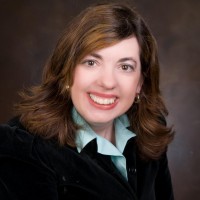 The book The Poor Old Liberal Arts is as timely today as it was when it was first published back in 1961.
The second edition of this ground-breaking work, which was recently released by Ignatius Press for a new generation of readers, offers a cogent rationale for why the study of the liberal arts is so critical to the health of our society.
The book The Poor Old Liberal Arts is as timely today as it was when it was first published back in 1961.
The second edition of this ground-breaking work, which was recently released by Ignatius Press for a new generation of readers, offers a cogent rationale for why the study of the liberal arts is so critical to the health of our society.
 Author Robert I. Gannon, S.J. was certainly quite prescient when he wrote this book more than a half-century ago. He noted that, from the beginning, two important truths formed the foundation of a liberal arts college “both of which seemed obvious enough in 1860 but both of which are vigorously challenged by our neighbors in 1960 with what seem to be disastrous results.”
Gannon wrote that the first truth was that all individuals “have the same principal purpose in life and that that purpose is discoverable.” Human beings are designed to praise, reverence, and serve God.
The second truth Gannon posited was that people “have faculties that are capable of being trained…as they cover broadly the intellect and the will.”
As a result, the early Jesuits “were satisfied that learning was not an end in itself but a means whose end was to make men more human and more spiritual, better able to live freely and fully here and to attain the ultimate purpose of their existence.”
Therefore, the original trailblazers at the university level saw their purpose not in primarily imparting facts or cultivating skills but the “refining of taste, the sharpening of intellect, the strengthening of will, the ennobling of character.”
But Gannon found such views being challenged by a “superficial” group that “talked about being practical in our schools; who wanted to teach just democracy, tolerance, and science, though unable to define any one of the three.” Today, when academic institutions spend so much time discussing “tolerance”—while often failing to tolerate religious viewpoints—Gannon’s words seem truly prophetic.
In The Poor Old Liberal Arts Gannon further explained the unique role of a Catholic education in this way:
Author Robert I. Gannon, S.J. was certainly quite prescient when he wrote this book more than a half-century ago. He noted that, from the beginning, two important truths formed the foundation of a liberal arts college “both of which seemed obvious enough in 1860 but both of which are vigorously challenged by our neighbors in 1960 with what seem to be disastrous results.”
Gannon wrote that the first truth was that all individuals “have the same principal purpose in life and that that purpose is discoverable.” Human beings are designed to praise, reverence, and serve God.
The second truth Gannon posited was that people “have faculties that are capable of being trained…as they cover broadly the intellect and the will.”
As a result, the early Jesuits “were satisfied that learning was not an end in itself but a means whose end was to make men more human and more spiritual, better able to live freely and fully here and to attain the ultimate purpose of their existence.”
Therefore, the original trailblazers at the university level saw their purpose not in primarily imparting facts or cultivating skills but the “refining of taste, the sharpening of intellect, the strengthening of will, the ennobling of character.”
But Gannon found such views being challenged by a “superficial” group that “talked about being practical in our schools; who wanted to teach just democracy, tolerance, and science, though unable to define any one of the three.” Today, when academic institutions spend so much time discussing “tolerance”—while often failing to tolerate religious viewpoints—Gannon’s words seem truly prophetic.
In The Poor Old Liberal Arts Gannon further explained the unique role of a Catholic education in this way:
… Catholicism is not to be found in any one book or course. It is a frame of mind, a point of view, an attitude toward the almost infinite number of tiny crises that arise in life. It is a culture of other worldliness that flavors and illumines not only our conduct but our knowledge.While parents and grandparents will appreciate The Poor Old Liberal Arts, they would do well to recommend it to their Millennial children and grandchildren, who could benefit from a traditional view of higher education in general and Catholic education in particular.
Visit our Book Notes archive.
Copyright 2019 Maria V. Gallagher
About the Author

Maria V. Gallagher
Maria V. Gallagher spends her days advocating for women, children, and families. She is the mother of a beautiful ballerina and a member of the worldwide Cursillo movement. In her spare time, Maria likes to blog, walk, sing, dance, and fill the room with laughter. Read her work at MariaVGallagher.com.


.png?width=1806&height=731&name=CatholicMom_hcfm_logo1_pos_871c_2728c%20(002).png)
Comments